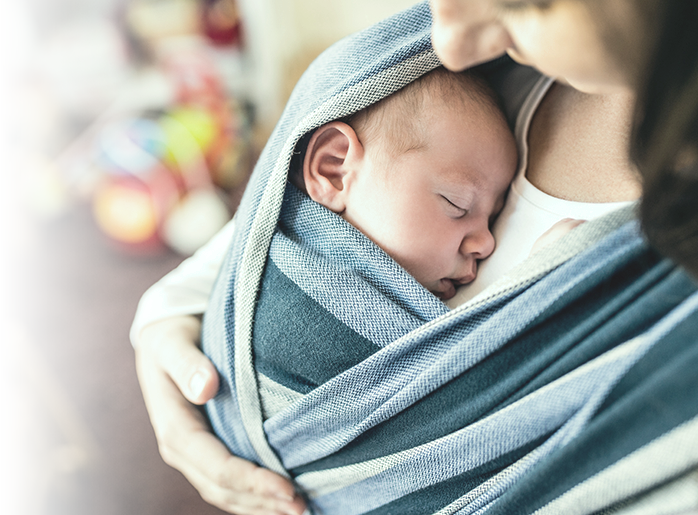Group B Strep
Know More: Group B Strep
Trustworthy information, straight from the source. Education is the first step in an empowering healthcare plan. Learn more about group B strep from prevention to diagnosis and treatment.

Condition Overview
What is a group B strep infection?
- Group B strep infection is a condition caused by bacteria called group B streptococcus (GBS). GBS are normally found in the digestive organs or vagina. A person may carry GBS and not get infected and become sick. GBS live inside the body, along with many other bacteria that are harmless to most people. GBS rarely cause serious problems in adults, but can be life-threatening to babies.
- GBS are not easily passed to other adults. Babies can get infected during or shortly after birth or if there is contact with a person infected with GBS. Among adults, GBS infection usually affects pregnant women, the elderly or adults with other diseases, such as diabetes or cancer. GBS infection may cause preterm delivery, stillbirth, or infections of the womb or bladder in pregnant women or infections in the blood, lungs or skin in adults.
Risk Prevention
What increases my baby’s risk of a GBS infection?
Your baby is more likely to be infected with GBS if you have any of the following:
- Water that breaks before the 37th week of pregnancy.
- Fever during labor.
- Previous birth to a baby with GBS infection.
- Positive test result for GBS in current pregnancy.
- Preterm labor.
How can I decrease my baby’s risk for a GBS infection?
Screening tests for GBS in mothers may be done during the 35th to 37th weeks of pregnancy. A sample from your vagina or rectum may be taken to check if you carry GBS. You may be given antibiotics if you carry the bacteria. Antibiotics will be given during your labor and delivery through an IV to prevent you from passing GBS to your baby.
What are the risks of GBS infection?
Treatment with antibiotic medicines may cause fast or irregular breathing, fever, rash or swelling around the face. Group B strep infection may cause sepsis, meningitis (infection of the membranes around the brain) and pneumonia (lung infection). Your baby may also develop problems with hearing, vision, speech or learning later in life. If left untreated, GBS infection may cause life-threatening brain or organ damage or a coma.
Diagnosis & Treatment Options
What are the signs and symptoms of a GBS infection in babies?
GBS infection in babies may be grouped into early-onset and late-onset GBS infection. Early-onset GBS infection occurs within the first week of life, usually within 72 hours of birth. Late-onset GBS infection commonly appears after the first week of birth. Your baby may have any of the following signs and symptoms:
- Eating poorly or vomiting.
- Fast or slow heartbeat and trouble breathing.
- Fever, hypothermia (very low body temperature) or seizures.
- Irritability, drowsiness or difficulty waking up.
- Sensitivity to bright lights.
- Tense or bulging fontanel (soft spot on the top of the head).
How is a GBS infection diagnosed in babies?
- Blood tests: Your child may need blood tests to give caregivers more information about what might be going on. The blood may be taken from your child’s arm, hand, finger, foot, heel or IV.
- Chest X-ray: This is a picture of your child’s lungs and heart. A chest X-ray may be used to check your child’s heart, lungs and chest wall. It can help caregivers diagnose your child’s symptoms, or suggest or monitor treatment for medical conditions.
- Lumbar puncture: This procedure may also be called a spinal tap. A small needle is placed into your child’s lower back and fluid will be removed from around your child’s spinal cord and sent to the lab for tests. The test is done to check for bleeding around your child’s brain and spinal cord and for infection. This procedure may also be done to take pressure off your child’s brain and spinal cord or to give medicine. Your child may need to be held in place to ensure there is no movement during the procedure.
How is a GBS infection treated in babies?
Your baby may need to stay in the hospital for treatment. Antibiotic medicines are usually needed to treat GBS infection in babies.
Preparing for Care
When should I seek immediate care or call 911?
- Your baby has a fever.
- Your baby has a seizure.
- Your baby has a tense or bulging soft spot on the top of the head.
- Your baby has trouble breathing and a very fast or slow heartbeat.
- Your baby is drowsy or more sleepy than usual.
- Your baby is vomiting often.
When should I contact my baby’s provider?
- Your baby is eating poorly.
- Your baby’s skin has swelling or a rash.
- You have any questions or concerns about your baby’s condition or care.
